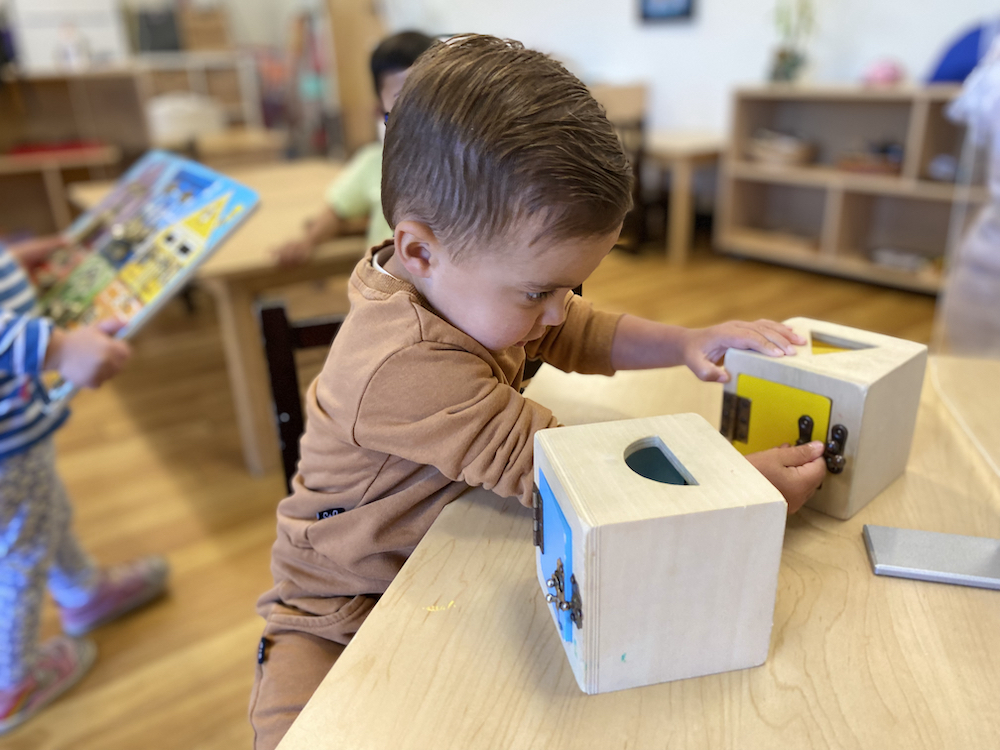(858) 759-0631
A core goal of Montessori education is building a love of lifelong learning in our children via the Montessori Method. This individualized learning system, via the 110 year-old teachings of Maria Montessori, Italy’s first female doctor, helps build gifted students.
In a private school Montessori setting, children are given the trust and respect to:
-
Make their own choices and judgments
-
Explore their interests at the pace they’re comfortable
-
Think differently to nurture and allow discovery of their abilities
Children absorb knowledge from their surroundings. They seek ways to manipulate their environments. They learn to master projects by watching older students and then teaching younger ones what they’ve learned. Our kids learn by thinking conceptually and then by doing.
Learning is based on engagement…the more we can focus our children to understand the ‘who, what, when, where, and why’ of how things work, the better they can learn and retain information.
The Power of a Curious Child
Daily, our children are processing new information all around them.
The sights, sounds, and motion of daily life are whizzing by them—in a car, in a classroom, via mass communication, in the air and in the water.
As children are capturing this information and creating an internal ‘need to know,’
their brains are connecting bits and pieces toward building knowledge, discovery, and understanding.
Being inquisitive by asking questions creates a natural knowledge flow towards achieving an ‘aha moment’ when a knowing smile replaces a furrowed brow.
In a Montessori classroom, we learn by asking questions. Once we learn answers to those questions, we apply that knowledge and its sense of purpose to us. As a result, our gifted students understand situations and people more thoroughly.
A core difference between public schools and a private Montessori school: we let our students explore within their own stimulating environment—building self-motivation, innovation, and creativity in the process.
Best of all, building a curious mind allows the child to learn no matter where they go and at any age. So, instead of just memorizing facts, they are learning how to ask questions and find answers--a stronger skill that lasts a lifetime.
How We Build Curiosity in Montessori
Unplugging from the world and retreating to the backyard is a good first step in building our children’s curiosity. For example, how about the two of you simply going outside on a summer night and looking at the stars? How about investigating the color of fallen leaves? Or, examining spring flowers in the garden?
Take a moment to let it all seep in. Then, talk about what you see in a give-and-take session. One way to get your child to open up is to simply ask them open-ended questions about what they see and the connectivity of it—for example, water to plant, plant to insect, pollen to growth, growth to harvest and harvest to table. Ask questions like:
-
Why is that?
-
When does that happen?
-
What’s that like?
-
Who does that?
-
Where is that?
-
How big or how far away or how many are there?
One of our jobs as parents is building a world of joy and wonder—what’s called ‘shock and awe’—that puts us in the middle of this massive, evolving planet of life. Here, we can think, determine reasons why things are the way they are, reflect on those discoveries and work toward asking deeper questions once our initial questions are answered.
At day’s end, our job in creating gifted students is built on student-centered learning. The Montessori Method, with its focused, individualized learning is a time-tested, systematic approach toward building children who wonder why and learn to use their minds to answer those questions.

